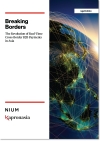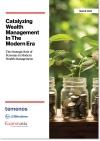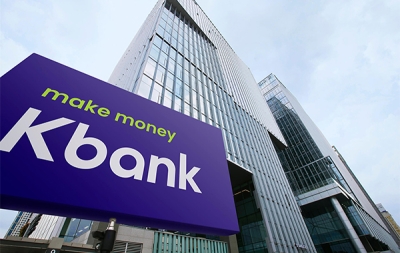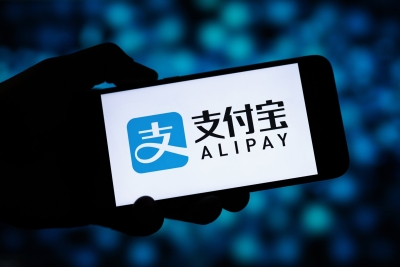Latest Insight
- Why an expected APAC fintech consolidation wave has yet to come
- Why cash is still prevalent in Asia
- Japan steps up green finance efforts
- South Korea charts middle path on crypto
- Should Grab and GoTo merge?
- Singapore pushes ahead with fintech-driven sustainability
- Digital banks in South Korea continue to thrive
- Billease is the rare profitable BNPL firm
- Fintech sector in Pakistan faces mounting challenges
- Where digital banks in Asia can make a difference
Latest Reports
-
Breaking Borders
 Despite progress in payment systems, the absence of a unified, cross-border Real-Time Payments (RTP) network means that intermediaries play a crucial role in facilitating connectivity. This report examines the ongoing complexities, challenges, and initiatives in creating a seamless payment landscape across Asia. Innovate to Elevate
Despite progress in payment systems, the absence of a unified, cross-border Real-Time Payments (RTP) network means that intermediaries play a crucial role in facilitating connectivity. This report examines the ongoing complexities, challenges, and initiatives in creating a seamless payment landscape across Asia. Innovate to Elevate In the dynamic and diverse financial landscape of the Asia-Pacific (APAC) region, banks are at a pivotal juncture, facing the twin imperatives of innovation and resilience to meet evolving consumer expectations and navigate digital disruption. Catalyzing Wealth Management In The Modern Era
In the dynamic and diverse financial landscape of the Asia-Pacific (APAC) region, banks are at a pivotal juncture, facing the twin imperatives of innovation and resilience to meet evolving consumer expectations and navigate digital disruption. Catalyzing Wealth Management In The Modern Era Hyper-personalized wealth management presents a paradigm shift from traditional models relying on static, generalized segments. Developing tailored investor personas based on psychographics, behaviours and fluid financial goals enables financial institutions to deliver rich and tailored customer experiences that resonate with next-generation priorities.
Hyper-personalized wealth management presents a paradigm shift from traditional models relying on static, generalized segments. Developing tailored investor personas based on psychographics, behaviours and fluid financial goals enables financial institutions to deliver rich and tailored customer experiences that resonate with next-generation priorities.
Events
| April 23, 2024 - April 25, 2024 Money 2020 Asia 2024 |
| October 21, 2024 - October 24, 2024 Sibos Beijing |
| November 06, 2024 - November 08, 2024 Singapore Fintech Festival |
Japanese e-commerce giant Rakuten has struggled in recent years amid intensifying competition in its domestic market and high costs linked to its decision to move into mobile communications. However, digital financial services is a bright spot for Japan’s largest platform company and Rakuten Bank’s April 2023 IPO – which raised US$624 million – was Japan’s largest market debut since 2018 when SoftBank’s telecoms unit raised US$23 billion. The stock has gained more than 36% since then and is currently trading at 2,627 yen (US$17.49).
As a core fintech service, payments are often tougher to monetize than higher-margin segments like lending, and this helps to explain why Kakao’s digital banking unit continues to outperform its payments arm. While Kakao Bank had yet another record year in 2023, the South Korea tech juggernaut’s payments swung to a loss. Kakao Pay has been trying to follow the Ant Group (a key Kakao Pay investor) formula which worked so well for the Chinese company – operating payments and digibanking as two distinct businesses. But we wonder if this model will work for the Korean company in the long run.
With the crypto bear market receding and the possible return to a bull market, it is interesting to note that the amount stolen from crypto exchanges fell in 2023. However, the overall number of digital asset hacks still grew. Maybe it was the belief that the bear market would endure that partially deterred the cybercriminals? Probably not. As it turns out, the main reason that less crypto was stolen last year was that digital asset platforms are becoming more sophisticated in their security and responses to attacks, and are working more successfully with law enforcement than in the past.
Of the five digital banks in Singapore, just three are active in the retail market, and with good reason. The city-state’s population has an exceedingly low number of financially excluded people, with Allianz Global Investment estimating that 98% of Singaporeans aged 25 and up have a bank account. That is not to say there are not opportunities for digital banks, but it depends on how one defines “underbanked.”
Singapore-based payments firm FOMO Pay has been expanding internationally on several continents. The company, which is a partner of Ripple, recently received a Money Service Operator license for Hong Kong and last week announced its expansion into Africa. It also recently secured a partnership with Mastercard and Z Bank.
As recently as October 2023, Indonesia’s peer-to-peer (P2P) lending company Investree was riding high. It was then that the company, which focuses on the B2B segment, announced it had raised $231 million in a Series D funding round led by Qatar’s JTA International Holding which also included participation from Japan’s SBI Holdings. The Series D round suggested high investor confidence in Investree, which had previously raised $23.5 million in a March 2020 Series C round led by MUFG Innovation Partners and Bank Rakyat Indonesia Ventures. Yet the events of recent weeks suggest all is not well at Investree – and that the viability of the company’s business model is shaky.
Despite the Philippines’ large unbanked population and geography that favors branchless banking, its digital lenders have yet to significantly disrupt the market. In fact, as it stands now, their market share appears to be a drop in the bucket.
South Korea’s K Bank has been thinking about going public for a while now. Its business has grown briskly since it restarted normal operations in mid-2021. Market conditions, however, have been suboptimal and the digital lender undoubtedly has observed how its rival Kakao Bank has yet to live up to lofty investor expectations. Though Kakao’s stock has recovered somewhat over the past year, rising about 4.5%, it is still down almost 58% from its market debut in November 2021. K Bank wants to avoid such a scenario.
Southeast Asia’s most exciting digital banking market at the moment also happens to be the region’s largest economy. No other country in the region offers the same breadth of digital banking opportunities as Indonesia. Much of the market development to date has involved strategic tie-ups between the country’s powerful conglomerates and Asian platform companies. However, incumbent banks unto themselves are increasingly emerging as a force to be reckoned with in the burgeoning digital banking market.
While regulatory uncertainty continues to hang over its domestic operations, Ant Group is not letting that get in the way of its ambitious global expansion of which the Alipay+ platform is a key part. The number of partnerships/tie-ups between Alipay+ and various entities is growing briskly and increasingly spans the whole of Asia, from Sri Lanka to Korea to the United Arab Emirates as well as Europe the United States.
More...
Malaysia has been one of the least hurried Asian countries when it comes to digital banking, owing to its middle-income status and high percentage of banked people – above 90%. The Malaysian central bank first mooted the idea of digital banks in December 2020 but nothing happened with regards to commencing operations for almost three years. That is finally changing, first with the low-key launch of Grab, Singtel and Kuok Group’s GXBank in the fall of 2023 and now with the respective soft launches of Boost Bank – a joint venture between fintech company Boost and RHB Banking Group – and AEON Bank, which is a subsidiary of AEON Financial Service in mid-January.
2023 was a year of incremental progress for the digital yuan and we expect more of the same in 2024. Gradually, hype about China’s central bank digital currency (CBDC) is easing, though it still flares up from time to time. Case in point: that report published by Bloomberg last summer that depicted the mBridge cross-border CBDC initiative as a potential challenger to the US dollar in the global financial system. As much as such narratives may generate clicks, they fail to ring true.
Singapore-based multicurrency wallet YouTrip announced on January 3 that its users can now hold up to S$20,000 (US$15,025) in their e-wallets and have an annual spending limit of S$100,000, up from S$5,000 and S$30,000, respectively. The new maximum limits are the same as those recently adjusted upward by the Monetary Authority of Singapore (MAS).
Mitsubishi UJF Financial Group (MUFG), Japan’s largest bank, is increasingly investing in Indonesia's burgeoning financial services sector as its home market is mature, slow to digitally transform and constrained to some degree by an aging population. In contrast, Southeast Asia’s largest economy offers low-hanging fruit in many different segments of financial services.
Internationalization of China’s currency has moved more slowly than many analysts had expected. The renminbi remains far behind not only the dollar but also the euro as a reserve currency, and several percentage points behind the both Japanese yen and pound sterling in that area. However, when it comes to payments, China’s currency has done better of late. From January 2023 to October 2023, its share of cross-border payments jumped from 1.9% to 3.6%, according to the International Monetary Fund (IMF).















